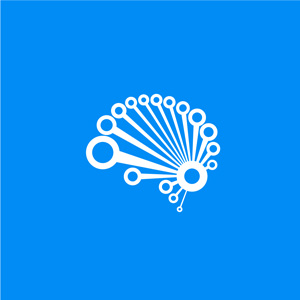You’ve probably been hearing Bitcoin & Blockchain almost non-stop for a couple of months now
But you’re not what the difference is.



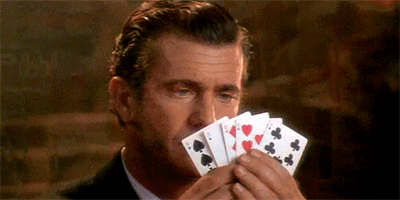
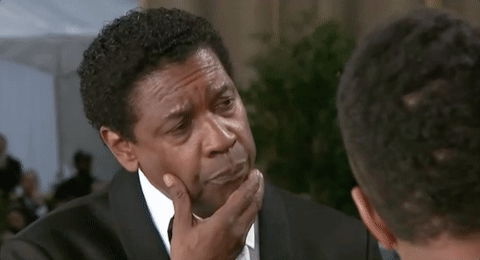

But worry not! This article aims to tackle this very subject: Blockchain vs. Bitcoin.
So let’s go!
I was not sure whether I should introduce bitcoin or not, because lately it has become a household-familiar name, not the exclusively tech elite topic that it used to be at its outset.
It’s all out in the open that there is something called bitcoin that is causing a fiasco around the world, disrupting the financial market and keeping the mainstream financial institutions alert.
Here’s what we’ll cover:
- I’ll give a brief breakdown, (both Blockchain vs. Bitcoin) just in case there is even one reader who might be sitting there not knowing what I’m talking about.
(Since, bitcoin and blockchain are two interrelated yet separate terms that have been recently bounced around interchangeably.)
- What I intend to do is to explain how they are separate and where they intersect in order to settle this Blockchain vs. Bitcoin confusion.
What is Bitcoin?
I’ll start with bitcoin, and just by understanding it you will have grasped the essence of theblockchain.
Bitcoin is a financial asset, a currency in the loosest sense of the term, and most importantly, it is 100% digital and decentralized.
In 2009, a person or a group (no one knows yet) by the name of Satoshi Nakamoto launched this currency in the direct aftermath of the global financial crisis. After the traditional financial institutions have proven to be irreparably corrupted and unable to preserve or manage value, bitcoin was launched as both a financial tool and a political statement.

On the one side, bitcoin can be a quick, safe, and modern method of financial exchange, and on the other, it is a way out of the corruption and incompetence of centralized currency control and the traditional financial methods.
Blockchain vs. Bitcoin – Blockchain: Here’s hot it works
Bitcoin was launched into and supported by a peer-to-peer network, an arena where people can make direct transactions with each other without any need for third parties, thus making the transactions cheaper without the fees cut down by these intermediaries.
Bitcoin is a cryptocurrency, so it is basically a currency that is encrypted in a way that provides its holders and exchangers with complete anonymity.
The exchange of this currency occurs directly between the two parties, something close to what happens when you share music or any type of digital document with somebody. There is one crucial difference here, though:
When you send a song to a friend, you are not sending the original file. You’re sending a copy of the file you have while keeping the original.
If this was the case with bitcoin that would have meant that if I had a bitcoin and decided to pay someone with it, then we would both have the coin. People would start hearing the “cha-ching.”
You could make copies of your money and go around double-, triple-, and quadruple-spending unaccountably. Unfortunately of all the crooked schemers, bitcoin has its innate safeguard against this.

The public ledger
On the coin itself or on the portion of it that you are spending is a public ledger that records every transaction that it has gone through. To avoid the need for a central authority or third party to keep track of these transactions, the ledger is verified by all the members of the network.
The coin itself is encrypted, though, but in a way that allows you to selectively reveal your coin’s data in order to help the performance of a transaction. This eliminates the problem of double-spending. We’ve here arrived at the infinite and magnificent world of the blockchain.
The blockchain is the grand totality in which all of this occurs.
On the blockchain, every single bitcoin transaction that has ever taken place is recorded, amounting to a ledger that is almost 160 GB big.

Blockchain is very basically a huge public ledger that every action is written in.
What is a Ledger?
A ledger is basically a book in which every transaction that takes place between individuals or businesses is recorded. You can have your own personal ledger inside of a “Hello Kitty” notepad where you record every dollar you spend or receive, and to or from whom. This could be just as well done by a multi-million dollar corporation, although “Hello Kitty” doesn’t make notepads big enough for these.
Although there are certain practices for running a proper ledger which typically would be the expertise of an accountant, if a 3-year-old starts recording what they get and what they spend, that’s still basically a ledger. A ledger can be either private or public.
Blockchain vs. Bitcoin: Blockchain – Here’s how it goes:
You send money to someone, and by this you write on the blockchain ledger something equivalent to “David sent money to Oscar” using methods of cryptography.
By “public” we mean that anybody on the network can volunteer to keep track of the latest transactions and help update the blockchain.
In the new decentralized ecosystem that blockchain facilitates, the centralized institutions that traditionally perform the tracking and balance-checking are now replaced by a vast network of individual users who are all keeping track of the same ledger, thus ensuring transparency and accountability.
Imagine playing a poker game with a few of your friends, with none of you having any cash.

You also don’t have a dealer to act as a central authority on keeping track of the bets.
You will each pull out a notebook and start documenting what each person is betting, who won every hand, and with what set of cards. After every hand, you will all compare your records to verify the transactions. No one can even attempt to cheat because it would be immediately caught.
That is especially if you imagine this scenario on a massive scale with people from all over the globe doing the checks.
“What’s a block?”
After many transactions, the page you are recording on in your notebook will be full, so you will turn the page and start from the top. You can imagine each of these pages to be a block in the public ledger, and there is a chain of these blocks, hence… blockchain!
Whenever you decide to make a bitcoin transaction, you practically announce this transaction publicly in this vast peer-to-peernetwork so that those people who are recording can keep track.
You release your account number, the account number of the person you are sending to, and the amount of bitcoins you are sending.
And the chain goes on and on.
Of course, transactions with a “few” bitcoins are not that common today. Perhaps that was back when a bitcoin was worth a dollar or a few cents. Today, however, with the huge market value that bitcoin has accumulated, a few bitcoins can be tens of thousands of dollars. Even at its current low bitcoin is playing within the $8,000-$9,000/1 bitcoin range.
You can send fractions of a bitcoin, which are broken down to every one-millionth of a bitcoin, which is called a “Satoshi” in tribute to the currency’s founder.
Whatever amount you send, it is recorded on the public ledger.
So, most people ask two questions and you might have thought about them yourself
- Can anyone just issue a currency like that?
- How do we say it offers privacy while at the same time saying that all the information is recorded on a public ledger exposed to everyone on the network?

Digital currency or digital gold?
As for the first question, the answer is simple. What makes the dollar a currency?
It is basically our belief that it is a currency and that it holds value.
The American Federal Reserve was given the legitimacy of the state by which it was able to and responsible of issuing the US dollar. Because of this legitimacy, the American people and later the whole world believed that it is a medium of value exchange.
There is no intrinsic value in the piece of paper on which the dollar is printed, but as long as people believe that it’s a currency, then it is used as such.
Today the legitimacy of bitcoin is almost undisputed, but there is one thing that stops it from being a currency in the real sense.
Bitcoin’s price is too volatile, and so a person receiving it today in exchange for a service, for example, cannot be sure what it will be worth the next day. Maybe he/she will have hit the jackpot with what yesterday was the price for a massage because the price of bitcoin suddenly hit the roof.

But this money could also become worth virtually nothing with the same suddenness.
That is not a viable sentiment for trade.One of the core characteristics of proper fiat currency is consistency. The reason people use US dollars in their dealings is because they know that it will preserve its value for a fairly long time unless something grand occurs.
Bitcoin is more like gold
It is a speculation asset that is rare in quantity.
Bitcoin is issued based on a scheme that will halt the production of bitcoins at 21 million.
Today there are more than 16 million bitcoins in circulation, but as the rate of issuance keeps halving as planned, the 21 million bitcoins are set to have been issued in complete by around 2140.
How they are issued is a whole big story on its own that is kind of irrelevant to our subject. Being this speculative asset is hindering bitcoin from being an actual currency. There is still uncertainty about its fate and future status, although its presence has become globally acknowledged.
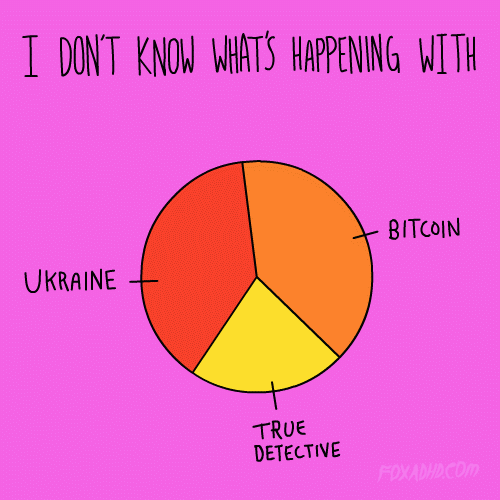
The Blockchain vs. Bitcoin universe
Let’s say bitcoin falls altogether, which is an almost impossible scenario for many reasons but just for the sake of clarification we’ll suppose so.
Blockchain would stand separately unaffected by bitcoin’s fall. Bitcoin is simply one application of blockchain. What bitcoin does through blockchain for finance, blockchain can do for any kind of human trade or interaction.
This takes us to the second question.
The issue of privacy is somewhat irreconcilable with the idea of the public ledger for many people, and offering a way to reconcile them is exactly blockchain’s superpower.
On the blockchain, all of your information is there but encrypted, and there is a public key which you can use to verify a certain piece of information to the auditors in the network, and a private key that is only accessible to you. This private key is practically your signature.
In a wider sense, the Blockchain is a portable identity
As an individual on the blockchain, you have certain identity attributes. Every kind of information about you gathered from every possible source. When performing a transaction, you get to selectively reveal the information that will help this transaction move forward.
“Blockchain allows us to create an open global platform on which to store any attestation about any individual from any source,” says blockchain expert Bettina Warburg.“This allows us to create a user-controlled portable identity.”
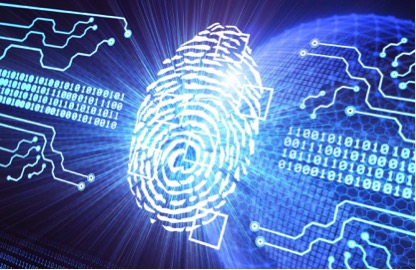
Besides being a superb identity management method, we have already covered its asset-tracking capabilities that facilitates bitcoin exchanging, and which can be applied to any kind of trade in the world.
When buying something on eBay, for example, you need to look at the profile of the person you are buying from.
You have to read the reviews, see the rating, and basically make sure that they won’t swindle you.
Blockchain creates for every member on its network a digital identity history, and upon any transaction, the attributes that are necessary to the transaction are revealed by cryptographic proof.
Most importantly, all of these transactions are verified by the auditors since they are recorded in the public ledger.
This technology is capable of completely wiping out the need for intermediaries
All of our dealings can be performed through the blockchain with more safety and speed.
This is not simply the platform supporting this single digital currency called blockchain. It is a technology that is set to change every aspect of human trade by creating a decentralized global trust network.
It enables each of us to own their information, as opposed to what is happening today on the internet. It also creates a true sharing economy by allowing people to perform direct transactions without the need for intermediaries like Uber in car-sharing or Airbnb in lodging.
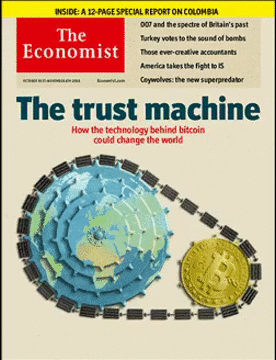
The grand revolution
These changes are expected to and probably will disrupt some of the greatest industries.
Banking and insurance are among these industries, and today banks are working on incorporating blockchain into their systems in order not to fall behind. In the first six months of 2017, a coalition of banks raised some $200 million of venture capital for blockchain firms.
Using blockchain, banks will be able to perform their transactions and maintain their tracking of money way better. However, as blockchain becomes a familiar tool to normal users, banks might themselves go obsolete.
Today there are startups in music, ride-sharing, real estate, banking, insurance, and many other industries, that are trying to incorporate blockchain into their services in order to lay the bricks for a decentralized, safe, and efficient ecosystem of trust.
Blockchain even has its applications in government activities and welfare systems as well as voting.
Think of it like this.
If the internet is an information network, Blockchain is a value network
